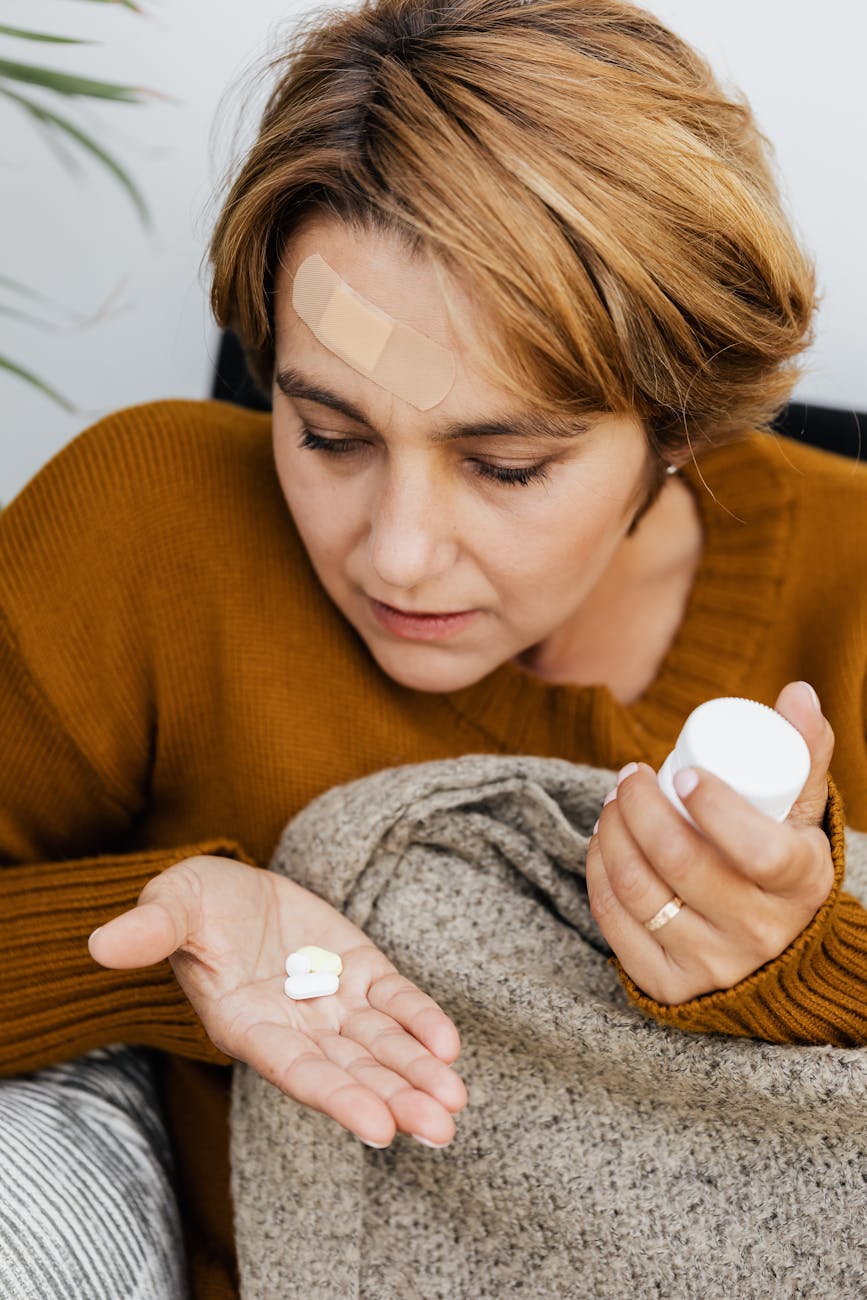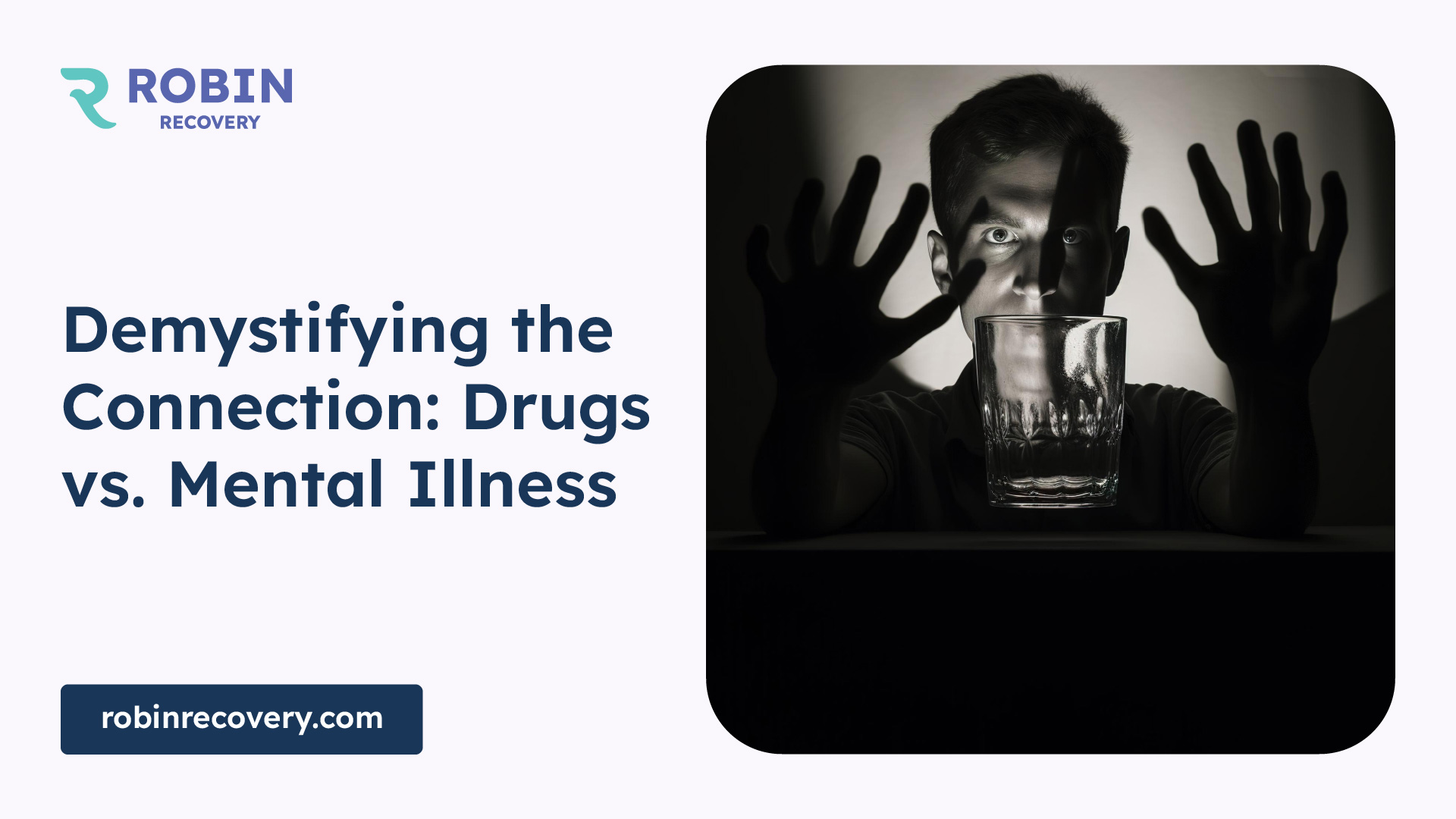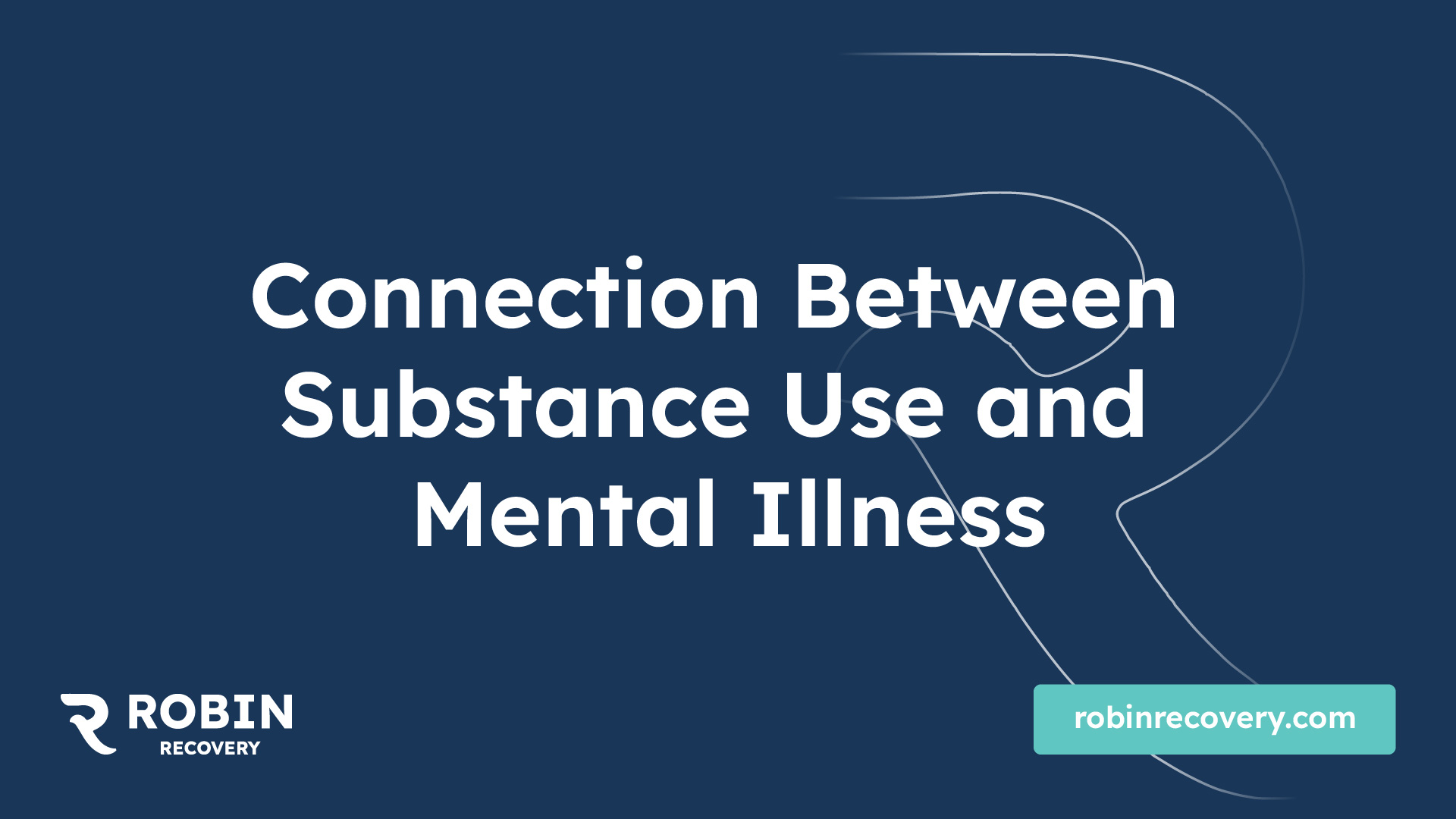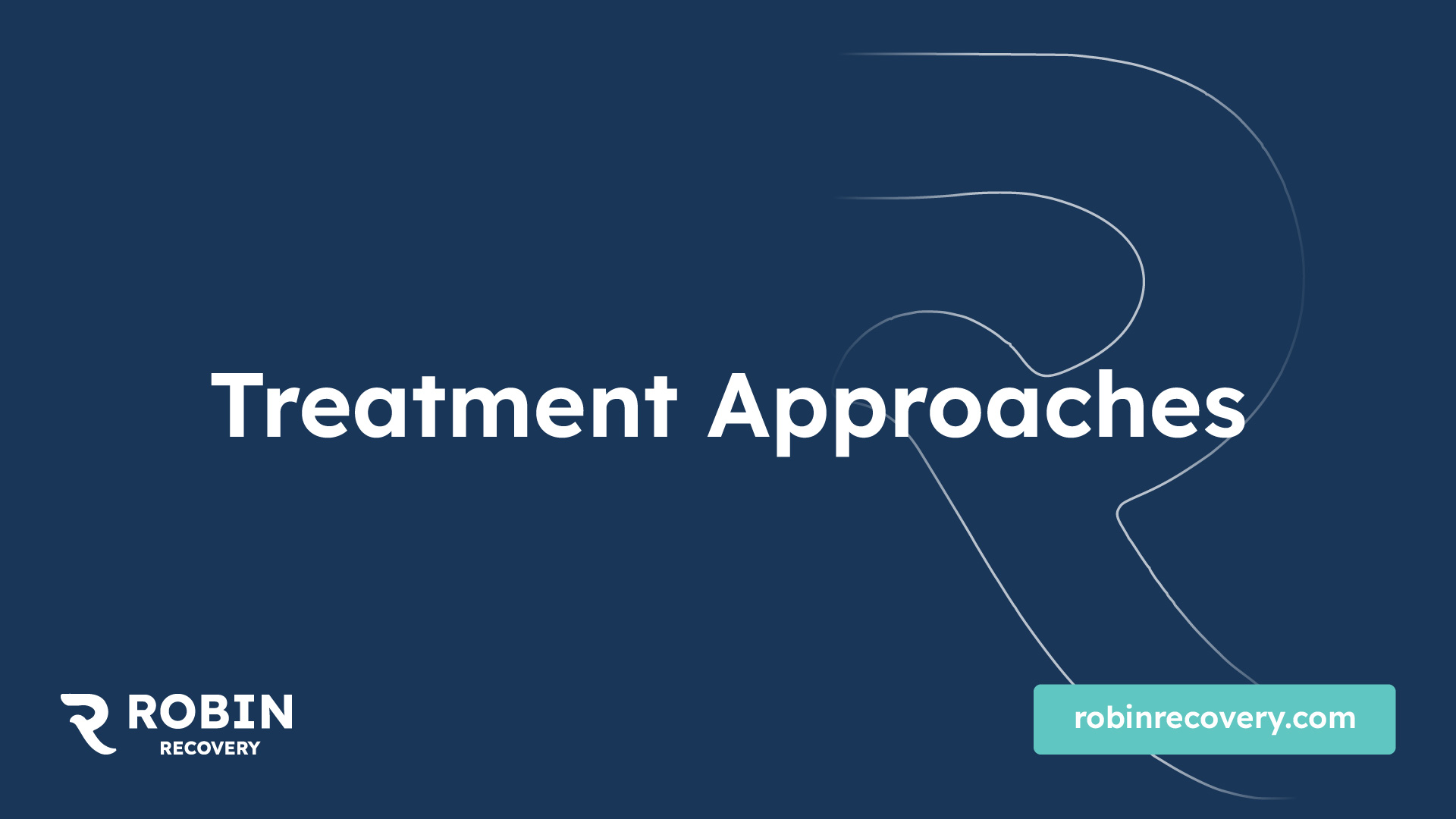Demystifying the Connection: Drugs vs. Mental Illness


Understanding Substance Use Disorders
Substance use disorders can have a profound impact on individuals' mental health and overall well-being. Recognizing the warning signs of drug abuse and understanding the impact of substance abuse is crucial in addressing these issues effectively.
Warning Signs of Drug Abuse
Identifying the warning signs of drug abuse can help individuals, families, and communities take proactive steps towards intervention and treatment. Some common signs of drug abuse include:
- Changes in behavior and mood
- Neglecting responsibilities at work, school, or home
- Engaging in risky or illegal activities
- Experiencing relationship problems
- Financial difficulties
- Physical changes such as weight loss or gain, bloodshot eyes, or unexplained injuries
Recognizing these signs and seeking help promptly is essential for preventing further harm. If you suspect that you or someone you know may be struggling with drug abuse, it is important to reach out for assistance. For more information on the warning signs of drug abuse, visit our article on types of mental disorders.
Impact of Substance Abuse
Substance abuse can have wide-ranging consequences on various aspects of an individual's life. The effects of substance abuse can be physical, psychological, and social. These impacts may vary depending on the type of drug being abused and the duration and intensity of use.
Physically, substance abuse can lead to health problems such as cardiovascular issues, liver damage, respiratory complications, and overdose. For example, heroin abuse can result in severe withdrawal symptoms when the drug is not used, and long-term effects may include collapsed veins, infections, lung complications, and abscesses [1].
Psychologically, substance abuse can contribute to the development of mental health disorders or exacerbate existing conditions. Common mental illnesses that can co-occur with substance abuse include anxiety disorders, depression, bipolar disorder, and schizophrenia [2]. Substance abuse can also impact cognitive functioning, memory, and decision-making abilities.
Socially, substance abuse can strain relationships with family, friends, and colleagues. It can lead to isolation, loss of employment, financial difficulties, and legal problems. The consequences of substance abuse can extend beyond the individual, affecting the well-being of their loved ones and the overall community.
Understanding the impact of substance abuse is essential in developing effective strategies for prevention, intervention, and treatment. Seeking professional help and accessing support services for substance use disorders is crucial for individuals struggling with addiction. For more information on accessing treatment and support, visit our article on support services for substance use disorders.
Mental Health Disorders
Mental health disorders encompass a wide range of conditions that can impact a person's behaviors, moods, and thoughts. These disorders can vary in severity, with some being temporary and mild, while others can be chronic and severe [3]. It is important to recognize the common mental illnesses and understand their symptoms and causes.
Common Mental Illnesses
Mental illness is a prevalent issue, with approximately 1 in 5 adults living with a mental illness in 2021 according to the National Institute of Mental Health. Here are some of the most common mental illnesses:
- Depression: Depression is characterized by persistent feelings of sadness, loss of interest or pleasure, changes in appetite and sleep patterns, and difficulty concentrating. It can significantly impact a person's daily life and overall well-being.
- Anxiety Disorders: Anxiety disorders encompass a range of conditions, including generalized anxiety disorder, panic disorder, social anxiety disorder, and specific phobias. People with anxiety disorders may experience excessive worry, fear, and physical symptoms such as rapid heartbeat, shortness of breath, and trembling.
- Bipolar Disorder: Bipolar disorder is a mood disorder characterized by alternating periods of elevated mood (mania) and depression. During manic episodes, individuals may feel euphoric, have increased energy levels, engage in impulsive behavior, and experience a decreased need for sleep. Depressive episodes are characterized by feelings of sadness, low energy, and loss of interest.
- Schizophrenia: Schizophrenia is a chronic mental disorder that affects a person's perception of reality. It is characterized by symptoms such as hallucinations, delusions, disorganized thinking and speech, and impaired social functioning. Treatment usually involves a combination of medication and therapy.
- Eating Disorders: Eating disorders, such as anorexia nervosa, bulimia nervosa, and binge-eating disorder, involve abnormal eating behaviors and distorted body image. These disorders can have severe physical and psychological consequences.
Symptoms and Causes
The symptoms of mental illness can vary depending on the specific disorder. However, some common symptoms include changes in mood, behavior, and cognition. In addition, untreated mental illness can cause severe emotional, behavioral, and physical health problems, making it a leading cause of disability [4].
The causes of mental illness are multifactorial and can involve a combination of genetic, environmental, and psychological factors. Genetic factors can contribute to an individual's susceptibility to certain mental illnesses, while environmental factors such as trauma, stress, and substance abuse can trigger or exacerbate symptoms. It is worth noting that having more than one mental health disorder simultaneously, such as depression and a substance use disorder, is possible.
Recognizing the symptoms and understanding the causes of mental illnesses is crucial for early intervention and appropriate treatment. If you or someone you know is experiencing symptoms of a mental illness, seeking professional help is essential. Mental health professionals can provide accurate diagnoses, develop personalized treatment plans, and offer support throughout the recovery process.
In the next section, we will explore the connection between substance use and mental illness, as these two conditions are often intertwined.

Connection Between Substance Use and Mental Illness
Understanding the connection between substance use and mental illness is crucial in addressing the complex challenges faced by individuals dealing with both mental health disorders and substance use disorders. This section explores the prevalence of co-occurring disorders and the various risk factors and genetic influences that contribute to this connection.
Prevalence of Co-Occurring Disorders
Co-occurring disorders, also known as dual diagnosis or comorbid conditions, occur when an individual experiences both a mental health disorder and a substance use disorder simultaneously. The prevalence of co-occurring disorders is significant, highlighting the need for integrated treatment approaches.
Over 60 percent of adolescents in community-based substance use disorder treatment programs meet diagnostic criteria for another mental illness. Additionally, approximately 1 in 4 individuals with serious mental illness (SMI) also have a substance use disorder. The odds ratio for the relative risk of co-occurrence of substance use disorders (SUDs) with any affective disorder is 2.3, with major depressive disorder (MDD) is 2.7, and with bipolar disorder is 9.2. Bipolar disorder is the Axis I diagnosis most likely to co-occur with an SUD [6]. Moreover, alcohol and illicit drug use affects approximately 50% of schizophrenic patients, leading to negative outcomes such as higher rates of violence, incarceration, medication non-compliance, psychotic relapse, hospitalizations, and adverse health effects.
Risk Factors and Genetic Influences
The connection between substance use disorders and mental illnesses is influenced by various risk factors, including genetic vulnerabilities and environmental factors. Research suggests that genetic factors play a significant role, with an estimated 40-60% of vulnerability attributable to genetics. Ongoing research aims to identify specific genetic factors that predispose individuals to develop both substance use disorders and other mental illnesses.
Environmental factors, such as chronic stress, trauma, or drug exposure, can also contribute to the development of co-occurring disorders. These factors can induce stable changes in gene expression through epigenetic mechanisms, impacting behavior and increasing the risk for mental illnesses and addiction. Furthermore, stress is a known risk factor for a range of mental disorders and provides a common neurobiological link between substance use disorders and mental disorders. Higher levels of stress can reduce activity in the prefrontal cortex and increase impulsivity, affecting individuals with substance use disorders and other mental illnesses. Additionally, individuals who have experienced physical or emotional trauma are at a higher risk for drug use and substance use disorders. People with post-traumatic stress disorder (PTSD) may use substances to reduce anxiety and avoid dealing with trauma, and the co-occurrence of PTSD and substance use disorders is associated with inferior treatment outcomes [7].
Understanding the prevalence of co-occurring disorders and the risk factors involved is essential for providing appropriate care and treatment to individuals dealing with both mental health disorders and substance use disorders. Integrated treatment approaches that address both conditions simultaneously are crucial for improving outcomes and promoting long-term recovery. To explore the various treatment options available, continue reading our article on treatment approaches for mental health and addiction.
Substance Use and Mental Health Interactions
The interaction between substance use and mental health is complex and multifaceted. Understanding the effects of drug use on mental health and managing co-occurring disorders are essential aspects of addressing this connection.
Effects of Drug Use on Mental Health
Drug addiction can affect anyone, regardless of socioeconomic status. When someone begins taking drugs, whether recreationally or medically, physical dependence and addiction can develop. Substance abuse can have profound effects on mental health, exacerbating existing mental illnesses or even leading to the development of new psychiatric disorders.
The relationship between substance use and mental health is bidirectional. People with mental illnesses may turn to drugs as a way to self-medicate or cope with their symptoms. On the other hand, substance abuse can induce or worsen psychiatric symptoms, such as anxiety, depression, or psychosis. The mental and physical effects of drugs like heroin, for example, can significantly impact an individual's mental well-being.
Managing Co-Occurring Disorders
Co-occurring disorders, also known as dual diagnosis or comorbidity, refer to the presence of both a substance use disorder and another mental health disorder. Over 60 percent of adolescents in community-based substance use disorder treatment programs meet diagnostic criteria for another mental illness [5]. Conditions such as schizophrenia, bipolar disorder, major depressive disorder, anxiety disorders, and personality disorders are frequently associated with substance use disorders.
It is important to note that the presence of a substance use disorder does not necessarily cause a mental health disorder, and vice versa. However, individuals with a substance use disorder may be at a higher risk of developing mental health disorders due to various factors, including genetic predisposition, environmental influences, and the impact of substance abuse on brain chemistry.
When someone has co-occurring disorders, it is generally recommended to treat both conditions simultaneously rather than separately. Integrated treatment approaches that address both substance use and mental health are most effective in promoting long-term recovery. Comprehensive assessment tools can help identify co-occurring disorders accurately and tailor treatment plans to individuals' specific combination of disorders and symptoms.
Behavioral therapies have shown promise in treating individuals with co-occurring substance use and mental disorders. These therapies, which may include cognitive-behavioral therapy, dialectical behavior therapy, and motivational interviewing, can address both the substance use and mental health aspects of an individual's condition. Medications can also play a role in treatment, such as those used to manage opioid, alcohol, and nicotine addiction.
Seeking help is crucial for individuals experiencing co-occurring disorders. Resources such as the Substance Abuse and Mental Health Services Administration (SAMHSA) National Helpline at 1-800-662-HELP (4357), the SAMHSA online treatment locator, and additional support services are available to connect individuals with mental health treatment services for substance use and co-occurring mental disorders. Taking the first step towards seeking help can lead to a path of recovery, improved mental well-being, and a healthier life overall.

Treatment Approaches
When it comes to addressing the complex relationship between substance use and mental illness, there are various treatment approaches available. These approaches aim to provide support, alleviate symptoms, and promote recovery for individuals facing co-occurring disorders. Two primary treatment modalities for addressing substance use and mental health are behavioral therapies and medication options.
Behavioral Therapies
Behavioral therapies have shown promise in treating individuals with co-occurring substance use and mental disorders [9]. These therapies may be recommended alone or in combination with medications. They focus on modifying behaviors, thoughts, and emotions to promote positive changes and improve overall well-being.
- Cognitive-Behavioral Therapy (CBT): CBT is a widely used approach that helps individuals identify and change negative thought patterns and behaviors. It can be helpful in addressing substance use disorders, as well as various mental health conditions such as depression, anxiety, and post-traumatic stress disorder (PTSD). By challenging unhealthy beliefs and developing healthier coping strategies, individuals can gain better control over their behaviors and emotions.
- Dialectical Behavior Therapy (DBT): DBT is a specialized form of therapy that combines elements of CBT with mindfulness techniques. It is particularly effective in treating borderline personality disorder and other conditions characterized by emotional dysregulation. DBT helps individuals develop skills for emotion regulation, distress tolerance, interpersonal effectiveness, and mindfulness.
- Motivational Interviewing (MI): MI is a client-centered approach that focuses on enhancing motivation and commitment to change. This therapy aims to explore and resolve ambivalence about substance use, helping individuals build motivation to make positive changes in their lives. It can be beneficial in addressing substance use disorders and enhancing treatment engagement.
Medication Options
Effective medications are available for treating substance use disorders (SUDs) and managing symptoms of mental disorders. It is essential to work closely with healthcare professionals to determine the most appropriate medication options based on an individual's specific needs and circumstances. Some common medication options include:
- Opioid Agonists/Antagonists: Medications such as methadone, buprenorphine, and naltrexone are used to treat opioid addiction. These medications can help reduce cravings, ease withdrawal symptoms, and prevent relapse.
- Alcohol Addiction Medications: Medications like disulfiram, acamprosate, and naltrexone are used to support individuals in their journey to overcome alcohol addiction. They work by reducing cravings, promoting abstinence, and managing withdrawal symptoms.
- Nicotine Replacement Therapy (NRT): NRT involves using medications like nicotine patches, gum, nasal sprays, or inhalers to help individuals quit smoking or using other forms of nicotine. These medications provide controlled doses of nicotine, reducing withdrawal symptoms and the urge to smoke.
- Psychotropic Medications: Psychotropic medications, including antidepressants, antipsychotics, and mood stabilizers, are prescribed to manage symptoms of mental health disorders. These medications can help stabilize mood, alleviate anxiety or depression, and improve overall mental well-being.
It's important to note that medication options may vary depending on the specific substance use disorder or mental health condition. Healthcare professionals should conduct comprehensive assessments to determine the appropriate treatment tailored to an individual's unique combination of disorders and symptoms. Collaborative discussions between the healthcare provider and the individual are crucial for developing an effective treatment plan.
By combining behavioral therapies and medication options, individuals can access comprehensive treatment approaches that address both substance use disorders and mental health conditions. These approaches aim to provide holistic support and help individuals on their path to recovery and improved well-being.
Seeking Help and Resources
If you or someone you know is struggling with mental health and addiction, it's important to reach out for help and access the appropriate resources. There are various avenues available to assist individuals in their journey towards recovery and well-being. Two key areas to consider are accessing mental health treatment and support services for substance use disorders.
Accessing Mental Health Treatment
To find mental health treatment services for substance use and co-occurring mental disorders, there are several resources available. One option is to contact the Substance Abuse and Mental Health Services Administration (SAMHSA) National Helpline at 1-800-662-HELP (4357). This helpline provides 24/7, confidential, and free information in English and Spanish. Trained professionals can offer guidance, support, and referrals to local treatment facilities, support groups, and other relevant resources.
Additionally, the SAMHSA online treatment locator can help individuals search for mental health and substance abuse treatment facilities in their area. By entering their location, users can access a comprehensive list of available resources tailored to their specific needs. Another option is to text their ZIP code to 435748 to receive a list of treatment centers near them [9]. These resources can serve as valuable starting points in the journey towards seeking mental health treatment.
Support Services for Substance Use Disorders
Support services play a vital role in assisting individuals with substance use disorders. These services often complement formal treatment programs and offer ongoing support, education, and resources. There are various support groups available, such as Alcoholics Anonymous (AA) and Narcotics Anonymous (NA), that provide a safe and non-judgmental environment for individuals to share their experiences and seek guidance from others who have faced similar challenges.
In addition to support groups, counseling services and therapy can be instrumental in addressing the underlying issues associated with substance use disorders. Behavioral therapies have shown promise in treating individuals with co-occurring substance use and mental disorders. These therapies may be recommended alone or in combination with medications. Effective behavioral therapies exist for both adults and children/adolescents with substance use disorders and co-occurring mental disorders.
Furthermore, medications can be an important part of treatment for certain substance use disorders. Effective medications are available to treat opioid, alcohol, and nicotine addiction, as well as to lessen the symptoms of many other mental disorders. A comprehensive assessment is essential to determine the appropriate medication options and tailor the treatment plan to an individual's specific needs [9].
Recognizing the need for help is a significant step towards recovery. If you suspect addiction in yourself or someone else, it is crucial to seek help promptly. There are resources and professionals available to guide individuals on their path to recovery and help them build a satisfying, drug-free life [10]. Don't hesitate to reach out and take that first step towards a healthier and happier life.
References
[1]: https://freebythesea.com/addiction-resources/drug-addiction/signs-of-drug-abuse/
[2]: /types-of-mental-illnesses-that-lead-to-addiction
[3]: https://www.dbhutah.org/5-warning-signs-of-mental-illness/
[4]: https://www.mayoclinic.org/diseases-conditions/mental-illness/symptoms-causes/syc-20374968
